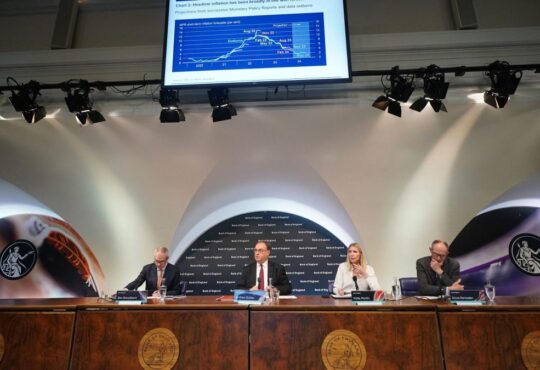
To avoid the early repayment charge, borrowers can move house by moving their existing loan to a new property, getting additional advances on that loan or taking out another loan alongside the existing one.
Ms Hovenko also pointed out that the UK is not necessarily the “worst” mortgage market, as variable-rate or very short-term fixed rate mortgages are much more common in many other countries too.
These included Sweden, Canada, Australia, New Zealand and Poland. She added: “Several of these countries have seen steep house price declines as a result of the soaring monthly mortgage repayments, reversing previous steep rises in property prices.”
‘A ticking time bomb since 2013’
Arjan Verbeek, of long-term mortgage firm Perenna, said the situation today could have been predicted as far back as 2013.
He said: “Between 2000 and 2008, banks printed lots of money and mortgage lending was too loose. House prices and mortgage debt grew at the same rate.
“Suddenly, lenders had a lot of debt and very low rates. It was obvious we had a ticking time bomb. Banks have since rolled back interest rates, inflating prices even more. The people suffering are now ordinary borrowers.”
Mr Verbeek said other countries have so far had a reason to reform their mortgage system, unlike the UK.
He said: “In the US, they had the Great Depression after which they needed pension funds and insurance companies to fund mortgages, and not the banks. In Copenhagen, they set up the Danish mortgage bank system after one fourth of the city was burned to the ground in 1795. In Germany, some 200 years ago after the Prussian War, a new system was set up to invest in rebuilding companies.
“In the UK, we’ve never needed a reason to change mortgages. We’ve stuck to deposits. We’re now at that point where we need to change too, because we haven’t had the problems we see now until now.”
Now read: This is the worst mortgage crisis since the 1980s – but the stakes are higher
Comparing the US and UK
A big difference between the UK and the US is what happens when the value of your home falls below the value of your mortgage.
In the US, there is no recourse. This is why homeowners in Nevada during the last financial crash could simply pop their keys through the letterbox and walk away.
In the UK, you cannot walk away from your property if this happens. You are obligated to pay back the difference.
Mr Hilber said: “This creates a form of stability and is why we don’t see high default rates.”
But recourse and longer-term fixes are not mutually exclusive. “You can do both of those things, they are not tied,” Mr Hilber explained.
“The problem the UK has now, with its model, is that for the past 20 or 30 years, interest rates have largely come down. My colleagues don’t remember high inflation and interest rates – they’ve had to read about it.






